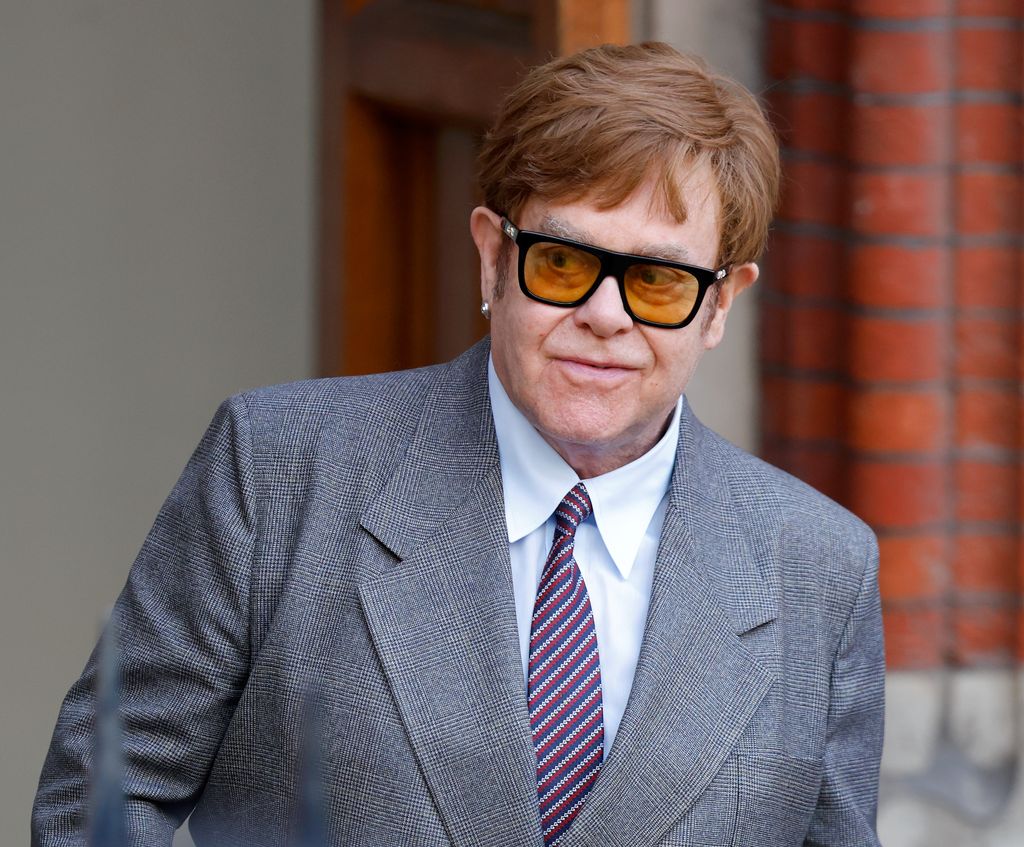The Duke of Sussex has been given the green light to proceed with his High Court privacy case against the publisher of the Daily Mail.
Prince Harry, 39, is one of seven high-profile claimants, who also include Sir Elton John and his husband, David Furnish, Baroness Doreen Lawrence, Sadie Frost, Elizabeth Hurley and Sir Simon Hughes, who have brought legal action against Associated Newspapers Limited (ANL).
The claimants have accused the publisher of allegedly carrying out or commissioning unlawful activities such as hiring private investigators to place listening devices inside cars, "blagging" private records and accessing and recording private phone conversations.
At a hearing back in March, ANL, which "firmly" denies the allegations, asked a judge to rule in its favour without a trial, arguing the legal challenges against it were brought "far too late".
In a ruling on Friday, Mr Justice Nicklin said ANL had "not been able to deliver a 'knockout blow' to the claims of any of these claimants".
In a joint statement, lawyers acting for Harry and others said they were "delighted" with the ruling.
ANL said in a statement: “As we have always made unequivocally clear, the lurid claims made by Prince Harry and others of phone-hacking, landline-tapping, burglary and sticky-window microphones are simply preposterous and we look forward to establishing this in court in due course.”
Harry flew over from California to make three appearances at the Royal Courts of Justice during the four-day hearing.
See his arrival on the first day at the High Court in the clip below…
Justice Nicklin concluded in his 95-page-judgment that each of the seven people in the claim have a "real prospect" of demonstrating that ANL concealed "relevant facts" that would have allowed them to bring a claim against the publisher earlier.
He said: "In my judgment, each claimant has a real prospect of demonstrating that Associated, or those for whom Associated is responsible, concealed from him/her the relevant facts upon which a worthwhile claim of unlawful information gathering could have been advanced.
"Whilst it is common ground that the publication of any unlawful articles was not concealed, these were, on the claimants’ case, only the tip of the iceberg.
"What was deliberately hidden from the claimants – if they are correct in their allegations – were the underlying unlawful acts that are alleged to have been used to obtain information for subsequent publication."
The judge also said the group bringing the legal challenges had "a real prospect of demonstrating not only that the unlawful acts themselves were concealed, but also, in many instances, further devices were employed in the published articles to throw the subject 'off the scent'".
He continued: "Several claimants complain that they believed that their confidences were being betrayed by people close to them.
"Depending upon what the evidence shows, this may be a significant factor on the issue of both concealment and the point at which any claimant could have been expected to begin investigating whether, in fact, the true source of private information appearing in articles was unlawful information gathering, rather than treacherous friends."
The judge also concluded that the “fair resolution” of any issue over the timing of the claims being brought “must await trial”.
Adrian Beltrami KC, for ANL, said at the hearing in March that the high-profile individuals could have used "reasonable diligence" to discover if they had a potential claim before October 2016.
He told the court: "The claims are rejected by the defendant in their entirety, as are the unfounded allegations that are repeatedly made that the defendant either misled the Leveson Inquiry or concealed evidence from the Leveson Inquiry."
The lawyer said the legal action against it has "no real prospects of succeeding" and is "barred" under a legal period of limitation.
David Sherborne, representing Harry and others, said ANL’s bid to have the claims ended was as “ambitious as it is unattractive” and that the group each had a “compelling case”.
Mr Sherborne later read out extracts from Baroness Lawrence's witness statement in which she said she felt "played for a fool" by the Daily Mail, believing the newspaper "really cared" about the injustice of the 1993 murder of her son Stephen Lawrence.
LISTEN: What winning Prince William's Earthshot Prize is really like


